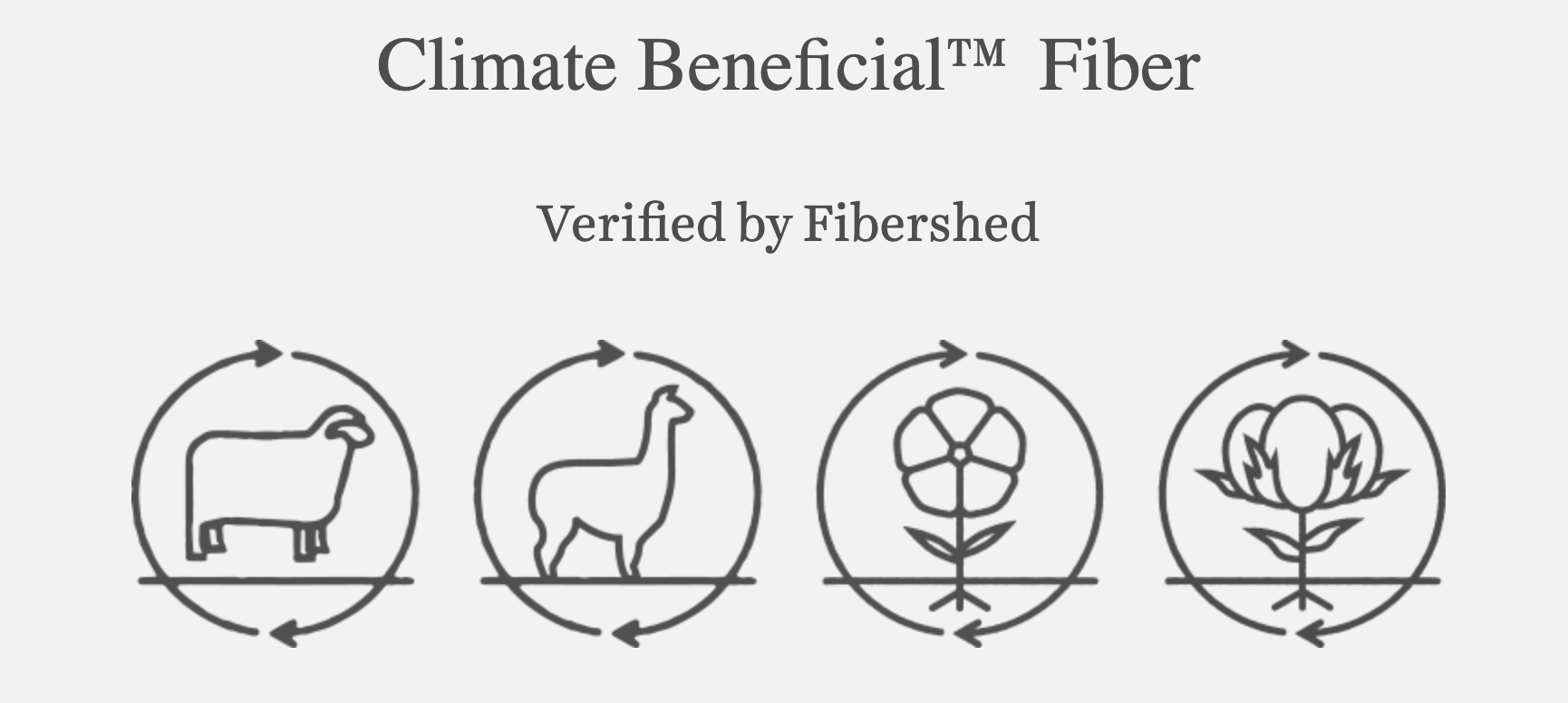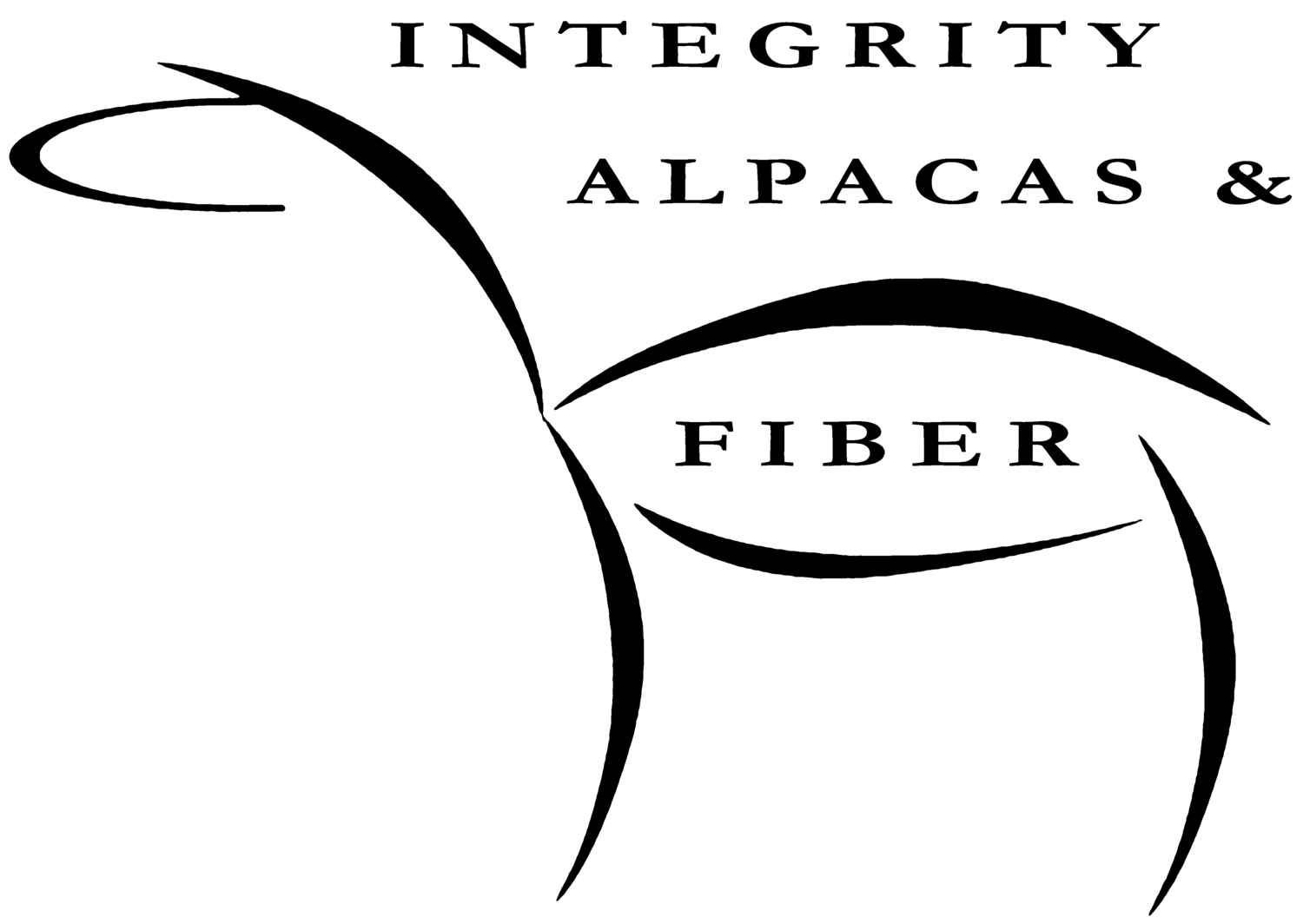Fibershed Producers follow these guidelines:
All fiber is farmed/sourced within Northern CA, from San Luis Obispo to the Oregon border
All botanic dye is farmed/sourced within Northern CA, from San Luis Obispo to the Oregon border
All labor is sourced within Northern CA, from San Luis Obispo to the Oregon border
Exceptions:
Until the region has its own cotton and fine gauge wool milling facility, Fibershed verifies goods from farmers that have had to send their raw material out of the area for milling.
Sewing thread and most notions are also not yet manufactured in our region, Fibershed verifies goods from artisans whose thread and notions are from out of the area.

Natural fibers like wool, cotton, alpaca, and flax linen can be grown and raised in ways that maximize the drawdown of carbon from the atmosphere to help restore ecosystem health and stabilize our climate.
Fibershed’s Climate Beneficial™ Verification program and label supports farmers and ranchers in landscape level stewardship that centers the work to build healthy soil. We focus on engaging producers and developing financial and technical support to enhance the drawdown of carbon from the atmosphere. By connecting fiber producers with designers and markets that value ecosystem services, we can grow materials and supply chains rooted in verified practices that:
Increase Soil Organic Carbon levels
Enhance biodiversity by providing habitat for pollinators, birds, and many species
Improve the water-holding capacity of the soil
Restore healthy ecosystems, from the soil microbiome to nutrient cycles
Provide measurable climate benefits, quantified by open-source data tools
Choosing Climate Beneficial verified fiber connects your garment or durable good directly to practices that regenerate soil carbon, and so much more.

